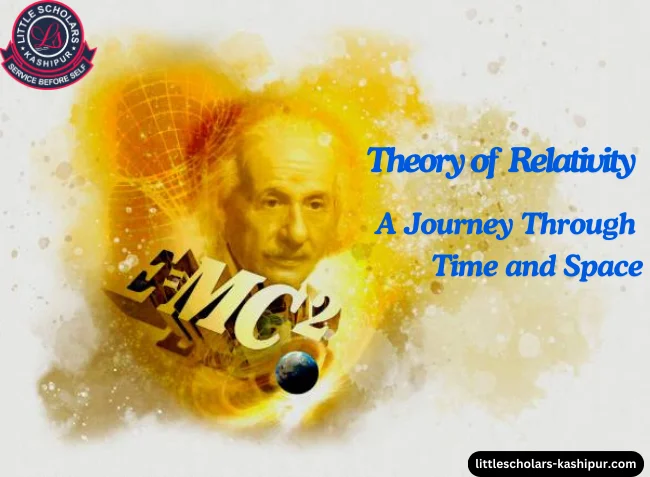The Theory of Relativity, formulated by Albert Einstein, is one of the most groundbreaking and fascinating concepts in modern physics. It revolutionized our understanding of space, time, and the very fabric of the universe. But what exactly is the Theory of Relativity, and why is it so important? In this blog, we'll break down this complex theory into easy-to-understand terms, exploring its significance and impact on our everyday lives.
What is the Theory of Relativity?
The Theory of Relativity consists of two main theories: Special Relativity and General Relativity.
Special relativity, introduced by Einstein in 1905, deals with objects moving at constant speeds, particularly at speeds close to the speed of light. It is based on two key principles:
1. The laws of physics are the same for all non-accelerating observers.
2. The speed of light is constant and does not change regardless of the observer's motion or the light source.
General Relativity, Einstein's 1915 publication expands on these concepts to incorporate gravity. It describes how massive objects, like planets and stars, warp the fabric of space-time, creating what we perceive as gravity.
Unlocking the Power of Student Motivation: A Guide to Inspiring Academic Success: Read now
Key Concepts of the Theory of Relativity
1. Space-Time Continuum
Einstein proposed that space and time are not separate entities but are interconnected and form a four-dimensional continuum known as space-time. This means that events that occur at the same time for one observer could happen at different times for another, depending on their relative motion.
2. Time Dilation
One of the most mind-bending predictions of Special Relativity is time dilation. It suggests that time passes differently for observers in different states of motion. For example, a clock moving at a high speed will tick more slowly compared to a clock at rest. This phenomenon has been confirmed through experiments with fast-moving particles and precise atomic clocks on airplanes.
3. Mass-Energy Equivalence
Perhaps the most famous equation in physics, E=mc2E = mc^2E=mc2, originates in special relativity. It asserts the interchangeability of mass and energy. A small amount of mass can be converted into a large amount of energy, which is the principle behind nuclear power and atomic bombs.
4. Gravitational Waves
General Relativity predicts the existence of gravitational waves, ripples in space-time caused by violent cosmic events like the collision of black holes. These waves were directly detected for the first time in 2015, opening a new window into the universe and confirming Einstein's century-old prediction.
Why is the theory of relativity important?
The Theory of Relativity has profound implications for our understanding of the universe. It has led to numerous technological advancements and deepened our knowledge of fundamental physics. Here are a few reasons why this theory is so important:
1. GPS Technology: The Global Positioning System (GPS) relies on precise time measurements from satellites. Without accounting for time dilation predicted by relativity, GPS would be highly inaccurate.
2. Understanding the Universe: Relativity has provided insights into the behavior of black holes, the expansion of the universe, and the nature of dark energy.
3. Scientific Advancement: It has paved the way for new theories and discoveries in quantum mechanics and cosmology.
Making Relativity Relatable
While the Theory of Relativity might seem abstract and distant from our everyday lives, it is a testament to human curiosity and our quest to understand the cosmos. By challenging our perceptions of space and time, Einstein's work has shown us that the universe is far more wondrous and mysterious than we ever imagined.
Next time you use GPS to navigate, remember that it's Einstein's Theory of Relativity at work, guiding you through the twists and turns of space-time.
Discover Environmental Studies: Connecting with Nature: Read now
Conclusion
The Theory of Relativity is not just a cornerstone of modern physics; it's a fascinating journey into the depths of our universe. By simplifying its concepts and exploring its real-world applications, we can appreciate the genius of Einstein and the profound impact his work continues to have on science and technology.




